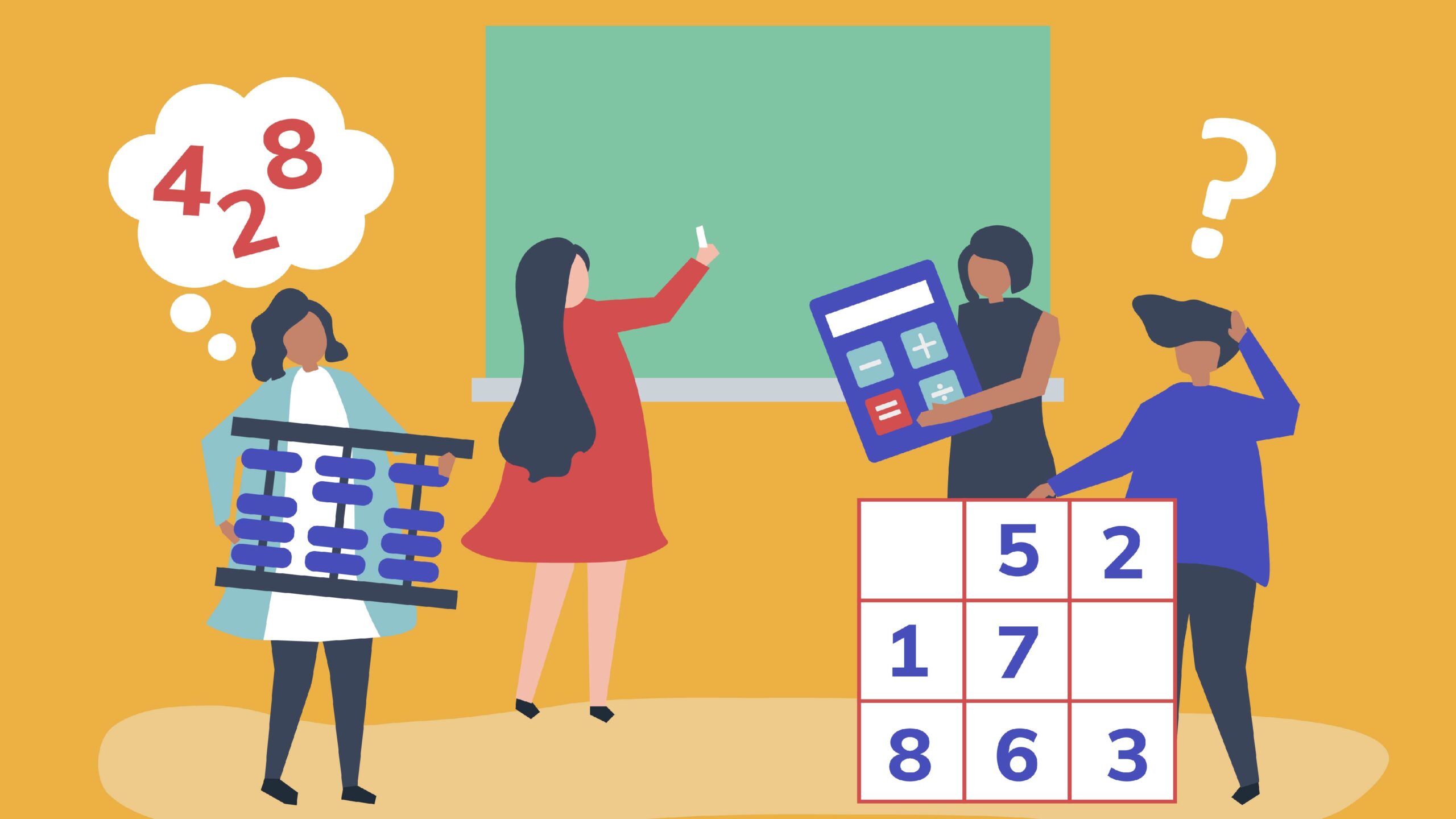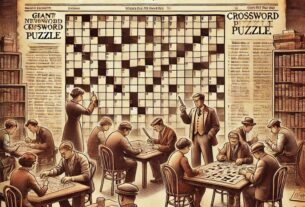Surely numbers abound in all around us. Numbers define our daily life from the minute we wake up and check the time till the seconds count away waiting for our coffee to brew. Still, they are not only arbitrary marks of time or measurements. Numbers have special power; they may entertain us, challenge us, and sharp our thoughts. Within the realm of memory games, one especially difficult task has captivated many people: The New York Times’ “Four Digits to Memorize NYT” game. More than just a numbers game, this is a basic but intriguing activity. This trip within your brain capacity is when the ordinary becomes a mental challenge.
But what about this four-digit challenge that has everyone chatting? Why are we lured to something apparently little as learning a few digits? The secret is in the complicated dance between simplicity and complexity—a balance our brains find enticing. So get ready as we explore the realm of numbers, memory, and the particular attraction of the NYT’s four-digit challenge.
The Concept Behind the Four Digits
Memorising four numbers initially seems like a small matter. We do, after all, constantly recall phone numbers, PINs, and passwords. Still, there is something unique about this particular challenge. The NYT has developed a basic idea into a fascinating exercise challenging our cognitive focus and short-term memory capacity.
Origins of the Four Digits Game
This game originated in ancient memory techniques, where intellectuals and philosophers employed numbers as mnemonic devices to recall enormous volumes of knowledge. The theory is based on “chunking,” a psychological phenomena whereby our brain arranges data into sensible parts that facilitates recollection. When writing supplies were limited in ancient times and knowledge had to be retained from memory, this method was extensively applied.
By now we live in the digital era, and the NYT has transformed this age-old approach into an interesting game. The NYT uses participants’ natural capacity to chunk data by asking them to recall a series of four digits, therefore transforming a basic memory test into a demanding mental challenge.
Why the NYT Loves This Challenge
Why then has the NYT embraced this challenge with such fervent energy? Its basic philosophy—to inform, interact, and inspire its audience—owns the solution. The NYT is a forum for intellectual discovery rather than only a news source. The four-digit challenge presents readers with an opportunity to hone their brains while having fun and fits very well with this goal.
Furthermore, the simplicity of the game makes it understandable to a wide spectrum. You can appreciate it without being a puzzle master or maths whiz. All you need is patience and a ready desire to interact with your brain. The universal challenge of the game appeals to everyone since memorising four digits can be unexpectedly difficult and quite fulfilling regardless of who you are.
How the Four Digits Enhance Memory
You might be wondering, why would memorising four digits be such a big deal? Right? It seems too basic to be of any actual cognitive advantage. Error! This difficulty is the ideal illustration of how little, regular activities may greatly affect your memory.
The Psychology of Number Retention
Fascinating organs, our brains can do amazing memory and cognitive feats. Regarding numbers, our brains are especially good at remembering and storing them because of the chunking strategy described above. More is involved, though, than just that.
Memory is really the encoding, storing, and retrieving mechanism for information. Memorising a series of numbers causes your brain to first encode the data into a neural representation. This might show up as kinaesthetic feelings, visual images, or even audible signals. Once encoded, the material resides in your short-term memory and can be accessed as required.
Still, the secret is the retrieval technique. To prevent overload, our brains are designed to ignore pointless knowledge. Here is where the four-digit challenge finds application. Regular practice of number retention helps your brain to becoming more effective in encoding and retrieving numerical data. This can provide both short-term and long-term memory enhancements over time.
Daily Practice: Turning Memory into Muscle
Your brain needs consistent training to remain in shape, much like your muscles do. Your memory gets better the more times you spend memorising numbers. Consider the four-digit challenge as a mental exercise maintaining sharpness and agility of your brain.
Daily memory activities have been demonstrated to provide many cognitive advantages. It can increase your focus span, boost your ability to solve problems, and even slow down the start of cognitive deterioration as you get older. Consistency is the secret; much as with any kind of workout, your improvement increases with increasing frequency.
Step-by-Step: Memorizing the Digits
ready to meet the challenge? This detailed manual will enable you to become a master memorising four digits:
1. shouldStart by giving the first digit top attention. See it, copy it, and let it sink in.
2. Once the first digit is down, go on to the next one. Once more, picture and practise it until it becomes second nature.
3. Combine the first two digits—that which you have memorized—into a single sequence. This is when chunking helps—just mentally group the two digits.
2. Proceed for the other two digits as before. By the conclusion, you should find a four-digit sequence firmly ingrained in your mind.
5. Practice, Practice, Practice: Recalling this series will get easier the more times you do it. You’ll find memorising four digits second nature over time.
The Appeal of the Four Digits
What appeals so much about the four-digit challenge? From the simplicity of the work to the sense of satisfaction that follows from mastering it, it’s a mix of elements. But it goes beyond that as well.
Simplicity Meets Challenge
The four-digit challenge is rather popular mostly because of its simplicity. Anyone may accomplish it; advanced mathematics knowledge or a thorough awareness of difficult ideas is not necessary. Still, the difficulty is far from simple, notwithstanding its simplicity. This results in a special harmony between challenge and accessibility, therefore rendering the game approachable and gratifying.
In the fast-paced world of today, when we are continuously inundated with knowledge, something is invigorating about a challenge that calls only a few minutes of concentrated attention. It’s a pleasant respite from the tumult, a moment of peace amid otherwise busy days.
Why We’re Drawn to Numerical Puzzles
Numbers appeal to us naturally. From early years, we are taught to count, add, and subtract. Many of us find great fascination in numbers as they are so basic in our life. From Sudoku to crossword puzzles to the four-digit challenge, numerical puzzles have long been well-known.
Completing a number puzzle makes one rather happy. It stimulates both logical and creative aspects of our brain and makes us feel successful when we get it properly. With its rapid and gratifying mental workout, the four-digit challenge appeals to this natural love of numbers.
The NYT and Digital Memory Training
Long noted for its dedication to intellectual stimulation is the NYT. The NYT has always sought to challenge the brains of its readers by means of its in-depth news or interesting riddles. One instance of the NYT’s ongoing digital era innovation is the four-digit challenge.
The Evolution of Memory Games
Since their introduction, memory games have advanced a great distance. From basic card-matching games, what began as a hobby has developed into sophisticated digital platforms providing several cognitive difficulties. Leading this change and always seeking fresh approaches to involve and challenge its readers, the NYT has been at front stage.
One shining illustration of how memory games have changed to satisfy a contemporary audience is the four-digit challenge. It’s rapid, demanding, and best fit for the digital medium. Playing on your computer, tablet, or smartphone, the game is always available and simple enough to match your everyday schedule.
How NYT Keeps the Brain Sharp
Beyond beyond memory games, the NYT’s dedication to brain health transcends Through its several outlets, the NYT presents several puzzles and challenges meant to keep your mind active. From Sudoku to the four-digit challenge, there is something for everyone including crossword puzzles.
These difficulties are a kind of mental workout that will help your brain function, not only a means of entertainment. Frequent participation in these activities can help to strengthen memory, sharpen problem-solving ability, and even raise mood. It’s a clever and entertaining approach to keep your brain in shape.
Adapting to Modern Times
Our attention spans in the fast-paced world of today are smaller than they once were. The NYT has responded to this by providing brief, interesting tasks appropriate for our hectic schedules. A brief brain training you could do on the fly, the four-digit challenge is a fantastic illustration of this.
The simple and easily accessible game is perfect for the modern audience. Either waiting for your morning coffee or grabbing a break at
Work, the four-digit challenge is a rapid and efficient approach to provide your brain some stimulation. All packaged neatly and conveniently, this is an exercise in focus, memory, and cognitive agility.
The Future of Digital Memory Games
The realm of digital memory games will change as long as technology develops. More complex challenges using aspects of artificial intelligence and machine learning will be expected to build customised puzzles fit to each person’s cognitive strengths and shortcomings. Finding fresh approaches to challenge and involve its readers, the NYT will probably remain leading in this field.
Memory games that assess our cognitive skills and track our development over time will eventually provide insights into our mental health and tailored advice on how to keep our brains in best shape. Digital memory games have limitless opportunities, and their future seems bright.
How to Get Started with the Four Digits Challenge

About ready to tackle the four-digit challenge? You can get started as follows.
Accessing the Challenge
First of all—you will have to access the challenge. Easy to play whenever you are, the NYT presents this game on its website and mobile app. Search the section on puzzles for the four-digit challenge.
Tips for Success
Although the difficulty would seem simple, there are a few strategies you might find useful to raise your performance:
1. Stay Focused: Memory suffers from enemies called distractions. Look for a peaceful area where you may totally focus on the work.
2. Visualise the digits as you learn them to help you to form a mental picture of them. This could be as basic as imagining the numbers in your head or linking them to known objects
3. If four digits apperdaunting, try grouping them in two pairs of two. Learn each pair independently then mix them.
4. Aswith any ability, regular practice makes perfect. You’ll improve at memorising numbers the more times you complete the four-digit challenge.
5.Stay Positive: Having trouble remembering the digits could easily cause irritation. Remain optimistic, keep on practicing, and keep in mind that change takes time.
What to Expect
You might find it tough to recall all four digits at first starting the task. That is very typical! The secret is to keep on practice and avoid becoming demoralised. Your capacity to remember and keep the digits increases with time; what appeared difficult will become second nature.
The Cognitive Benefits of Number Memory Exercises
Though the four-digit challenge is entertaining, it also provides several cognitive advantages. Frequent numerical memory drills can assist enhance brain function including memory, focus, and mental agility.
Enhanced Short-Term Memory
Enhanced short-term memory is among the most obvious advantages of number memory drills. Your brain gets better at clinging to data for brief intervals as you learn to memorise and recall sets of digits. This can permeate various spheres of your life and help you recall things like phone numbers, grocery lists, even the names of recently encountered people.
Improved Focus and Concentration
Exercises in number memory demand a great degree of attention and concentration. Regularly challenging yourself helps your brain to block out distractions and keep concentrated on the current work. This can help you in various spheres of your life, such employment or education, where consistent focus is really vital.
Boosted Mental Agility
Mental agility is the brain’s capacity for fast thinking and new knowledge adaptation. Through a variety of memory exercises, you maintain flexibility and responsiveness in your brain. This will enable your quick thinking and inspire original problem-solving ideas.
Delayed Cognitive Decline
Our cognitive skills inevitably drop with age. Regular mental workouts, such number memory tests, have been found, nevertheless, to help slow down this drop and maintain our brains for longer. Maintaining brain activity helps you create a cognitive reserve that might guard against age-related disorders including dementia.
Why You Should Try the Four Digits Challenge
Here are several reasons the four-digit challenge is worth doing even if you’re still unsure about it.
It’s Fun and Engaging
Traditional memory drills can be a little boring, let’s face it. But the four-digit task is anything but dull. This is an interesting and entertaining approach to explore how fast your memory can pick back up.
It’s a Quick Mental Workout
Everybody has hectic lifestyles, hence it can be difficult to find time for extended mental activities. But the four-digit challenge is a quick and efficient approach to get your brain some exercise without sacrificing too much time. In just a few minutes every day, you can maintain mental clarity and readiness for anything.
It’s Accessible to Everyone
The four-digit challenge is open to everyone regardless of experience level in puzzle solving—complete novice or seasoned solver. You only need a willingness to interact with your thoughts and have fun; there is no requirement for particular expertise or ability.
It Offers Real Cognitive Benefits
The four-digit challenge is a strong tool for enhancing your cognitive skills, not only a game as we have stated. Regularly completing this challenge will help you to maintain your brain flexible and healthy, increase your focus, and strengthen your memory.
Conclusion:
The four-digit challenge is a welcome and efficient approach to keep your mind sharp in a world full of distractions and information overload. This easy, enjoyable, and interesting exercise uses numbers’ ability to improve your cognitive skills. The four-digit challenge is the ideal way whether your goals are to increase your memory, enhance your focus, or just enjoy a brief mental workout.
So, why not try it? Accept the challenge and discover the distance your memory will allow you. What you are able to do surprises you!
FAQs
1. How often should I practice the four-digit challenge?
Daily practice of the four-digit challenge is advised if one wants to observe obvious memory development. Even a few minutes every day can change greatly over time.
2. Can the four-digit challenge help with remembering passwords or PINs?
Regularly working on the four-digit challenge will help you remember PINs and passwords as well as numbers. Your acquired abilities from this practice will help you in many spheres of your life.
3. Is the four-digit challenge suitable for all ages?
Correct! People of several ages can access the four-digit challenge. Young or old, you can gain from the cognitive challenge this offers.
4. Can I use mnemonic devices to help with the challenge?
Indeed, employing mnemonic devices will help you to do better in the four-digit challenge. Techniques like visualisation or linking numbers with known items can help you more readily recall the digits.
5. What if I struggle to remember all four digits?
If you find it difficult to recall all four digits, don’t panic; this is quite normal—especially in first commencing. The secret is to maintain honing your memory abilities by slow increase. You will find it simpler with time to recall the order.




